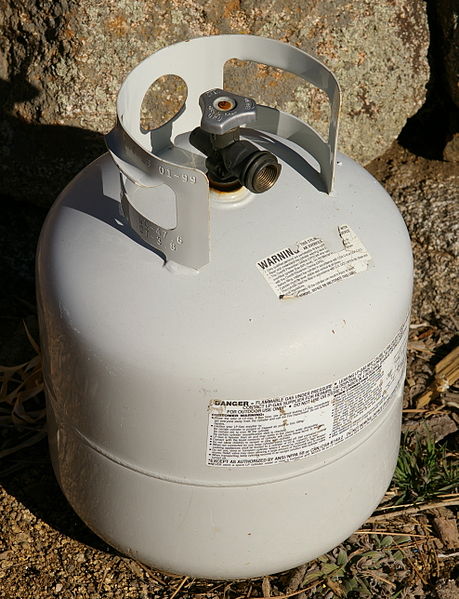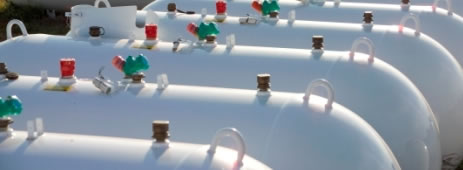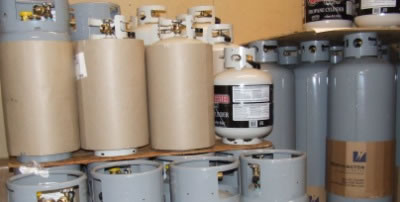|
What should you know? Product Specifications Sources Energy content Density History Properties and reactions Uses 
What is propane? What can I use propane gas for? Is propane safe? How is Propane Made? Is propane dangerous to the environment? Who uses propane? Is propane really convenient to use? Q: What is propane? A: Propane is a liquid that comes from a combination of natural gas processing and petroleum refining. Propane is always a liquid until it is used. Propane is non-toxic and odorless; an identifying odor is added so the gas can be readily detected if there is a leak. Q: What can I use propane gas for? A: Propane is a versatile product that you can use to heat your home, business, or farm. It can also heat your water, cook your food, dry your clothes, power your gas fireplace, heat your pool or spa and power your emergency standby generator. Q: Is propane safe? A: Propane has an excellent safety record. The propane industry has developed its own set of very stringent codes and regulations and is considered to be one of the safest ways to heat your home. Propane is safe and non-toxic and produces minimal emissions. Propane is not harmful to soil or water. Propane Tanks - Stationary Tanks and Cylinders  Propane Tanks - the heart of the lpg system Propane tanks are the storage containers for propane in its liquid form. Tanks are available in many different sizes being engineered and designed for propane containment at high pressures. Propane tanks are designed for both stationary and mobile use. The propane tank itself is what allows propane and its usable energy to be portable.  General Cylinder Requirements Like large propane tanks, cylinders are subject to rules and regulations set out by Federal and State governments. Propane companies must adhere to these rules when not only filling cylinders, but determining if cylinders are safe and legal to fill. The requirements include protection from rust and damage that may dent the cylinder. Propane bottles, like ASME stationary LP Gas tanks, must be painted a reflective color to avoid overpressure situations. For more detailed information, see Propane Cylinder Requirements.  * Understanding Propane Tanks * Propane Tank Sizes * Underground Propane Tanks * Propane Tank Installation * Propane Tank Protection * Propane Cylinders
o Industrial Propane Cylinders o Consumer Propane Cylinders o OPD Cylinder Valves o Propane Cylinder Filling o Propane Cylinder Storage o Propane Cylinder Usage Propane is a hydrocarbon (C3H8) and is sometimes referred to as liquefied petroleum gas, LP-gas, or LPG. Propane is produced from both natural gas processing and crude oil refining, in roughly equal amounts from each source. Nearly 97 percent of propane consumed in the United States is produced in North America. It is nontoxic, colorless, and virtually odorless. As with natural gas, an identifying odor is added so the gas can be readily detected. Is propane dangerous to the environment? No. Propane is an approved, clean fuel listed in the 1990 Clean Air Act and the Energy Policy Act of 1992 and is one of the cleanest burning of all fossil fuels. Tests conducted by the _________ Environmental Protection Agency show that propane-fueled vehicles produce 30 percent to 90 percent less carbon monoxide and about 50 percent fewer toxins and other smog-producing emissions than gasoline engines. Propane also is nontoxic, so it’s not harmful to soil or water. Who uses propane? Propane is used by millions of Americans each day. People use propane in and around their homes for furnaces, water heaters, air conditioners, outdoor grills, fireplaces, and appliances. On farms, propane-fueled equipment and technologies control pests, dry crops, and power irrigation pumps. Industrial uses include propane-driven forklifts and fleet vehicles. And millions of commercial establishments, including __________ and __________, depend on propane for heating, cooking, and other uses. Is propane really convenient to use? |
